Secure your place at the Digiday Media Buying Summit in Nashville, March 2-4
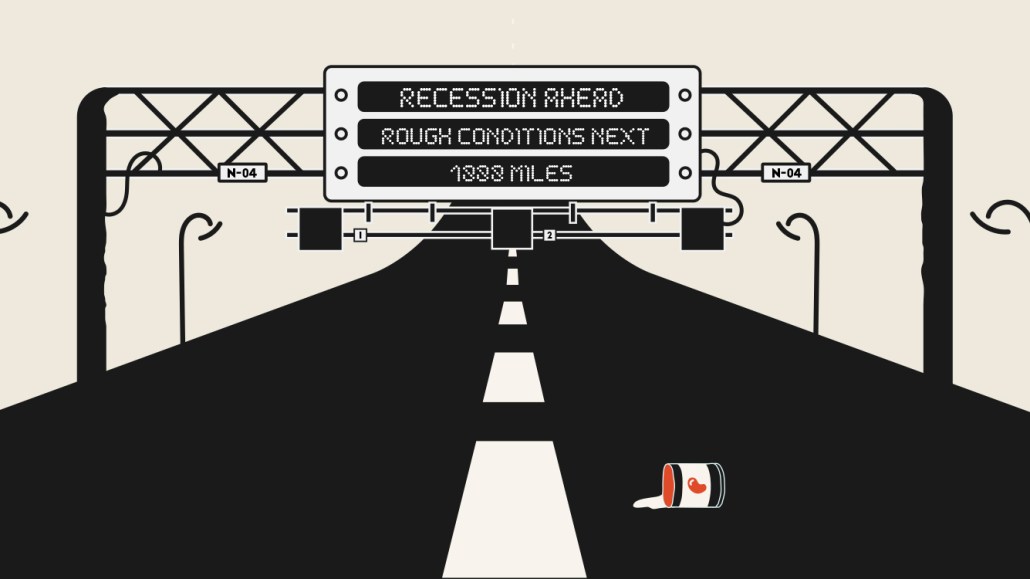
This research is based on unique data collected from our proprietary audience of publisher, agency, brand and tech insiders. It’s available to Digiday+ members. More from the series →
In February, publishers braced themselves for a tough quarter ahead. Now, reality is beginning to emerge.
A Digiday Research survey of 127 publishers found that 52% of publishers missed their first-quarter numbers. About 23% managed to exceed their forecasts, while 25% hit them.
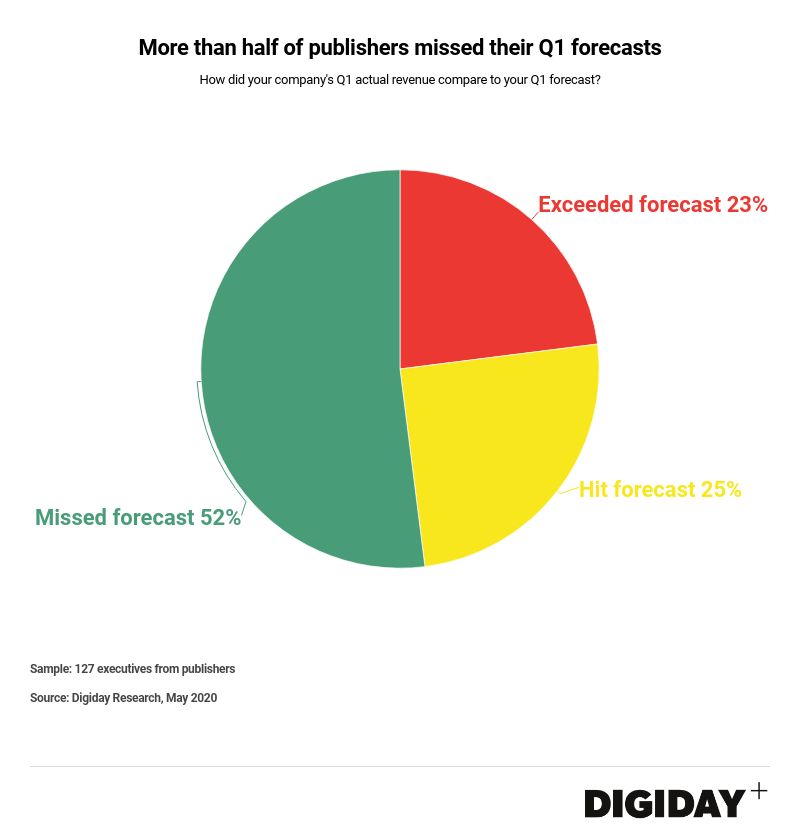
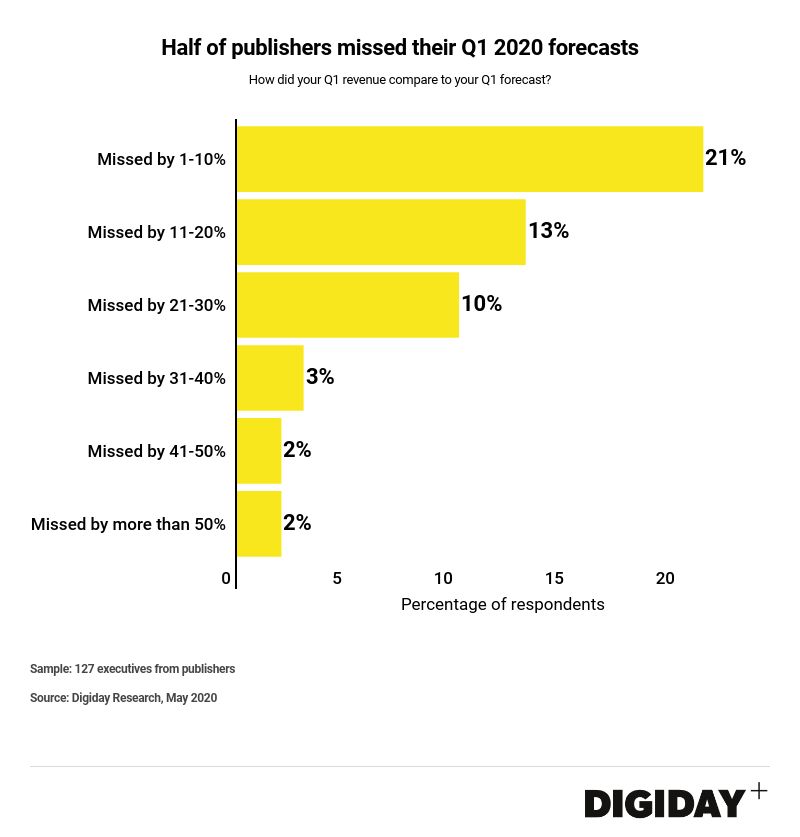
Publishers are bracing for a worse second-quarter: 80% have lowered forecasts.
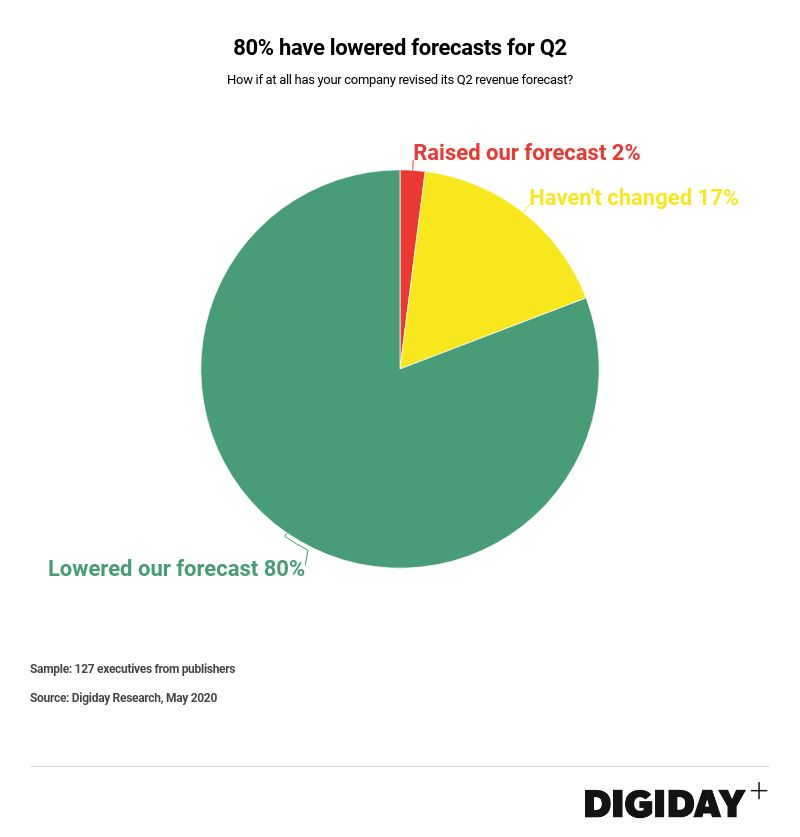
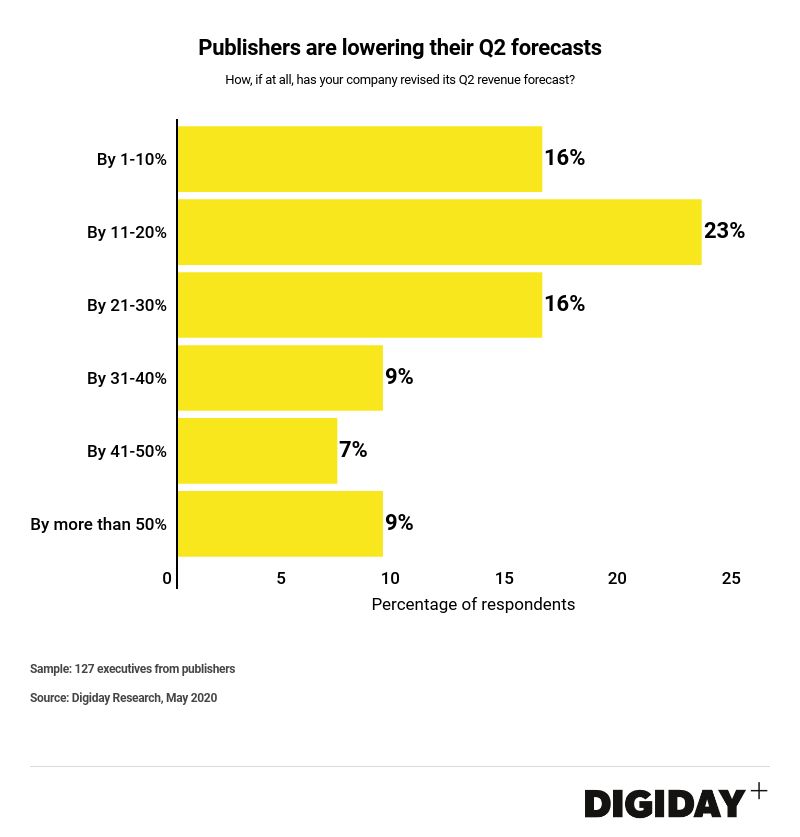
Back in March, Digiday Research found that 88% of the publishing executives surveyed expected to miss business goals for the entire year. About 85% of them expected to see a decline in ad revenue, 79% in event revenue and 68% in commerce revenue.
It’s been an especially tough time for news publishers: 59% of them said they missed their forecasts in the first quarter, and 19% of them exceeded it.
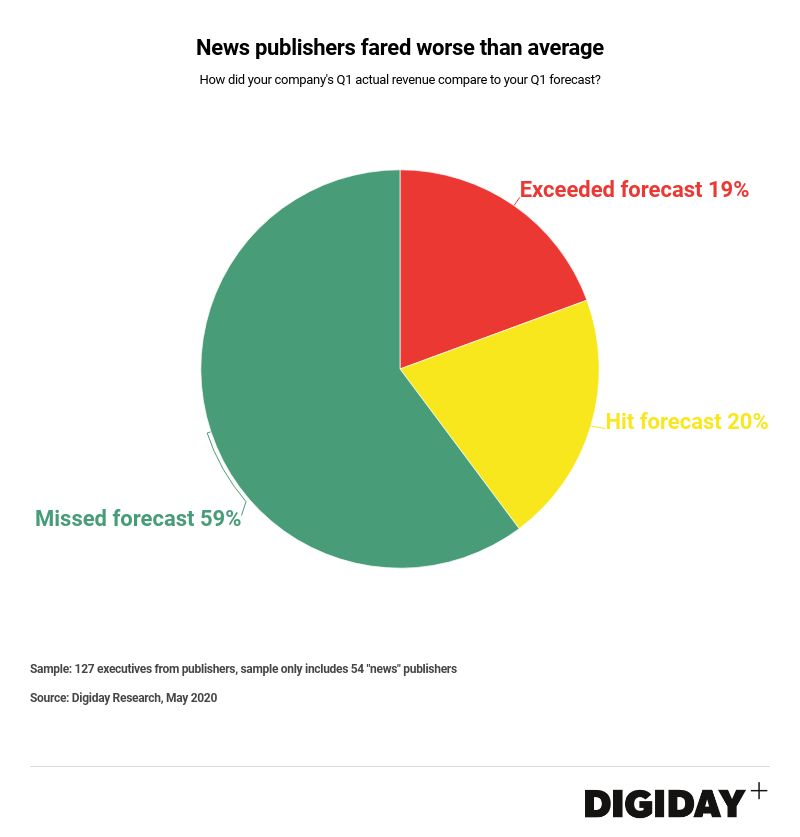
As for the second quarter, only 1% have raised their forecast, while a whopping 70% have lowered it.
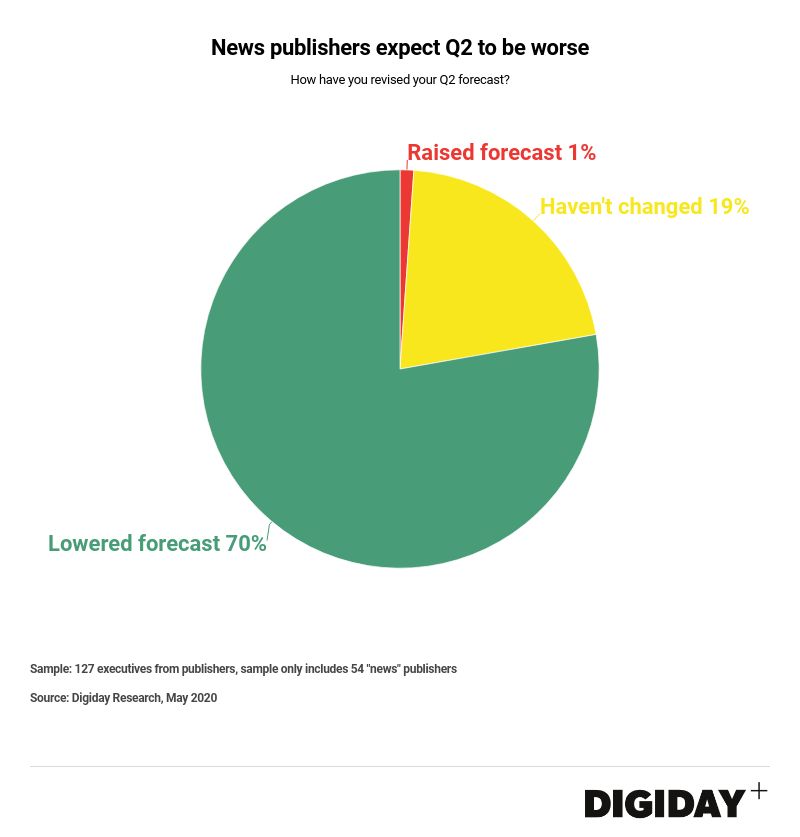
Advertisers continue to be reluctant to spend any money on ads alongside coronavirus content. A prior Digiday survey found that 40% of brands are not advertising next to coronavirus-related news online, up slightly from the same survey conducted a month ago, when 37% said they will not buy ads alongside coronavirus-related content.
More in Media

Media Briefing: Turning scraped content into paid assets — Amazon and Microsoft build AI marketplaces
Amazon plans an AI content marketplace to join Microsoft’s efforts and pay publishers — but it relies on AI com stop scraping for free.

Overheard at the Digiday AI Marketing Strategies event
Marketers, brands, and tech companies chat in-person at Digiday’s AI Marketing Strategies event about internal friction, how best to use AI tools, and more.

Digiday+ Research: Dow Jones, Business Insider and other publishers on AI-driven search
This report explores how publishers are navigating search as AI reshapes how people access information and how publishers monetize content.





